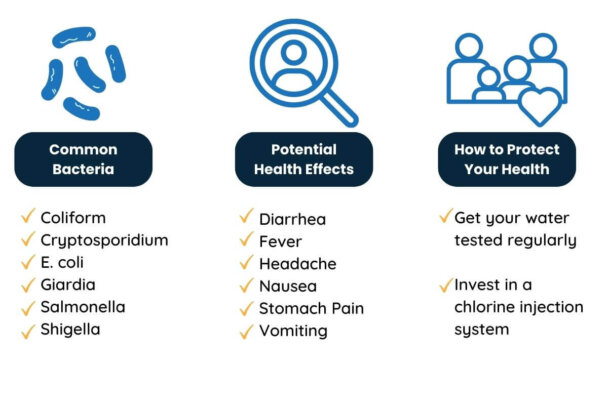Aside from stomach pain and nausea, all these contaminants come with additional health risks. The severity of those risks depends on which toxins you’re dealing with.
Lead and arsenic contamination can cause very severe health effects. Lead poisoning often comes with issues like anemia, hypertension, coma, behavioral and developmental issues in children and more. The mental and behavioral damage lead can do is often irreversible. Likewise, arsenic can increase your risk of bladder, lung and skin cancer, cardiovascular disease and kidney damage.
The rest of the bacteria listed above all bring about unpleasant symptoms, including diarrhea, fever, headache and stomach pain. But fortunately, infection is rarely life-threatening. The age groups most at risk of severe illness are the very young and the very old.
If you come down with a waterborne illness, we recommend consulting your doctor about the best treatment options. These will likely include bed rest at home with plenty of fluids and pain medication. However, some more severe cases may require hospitalization.



